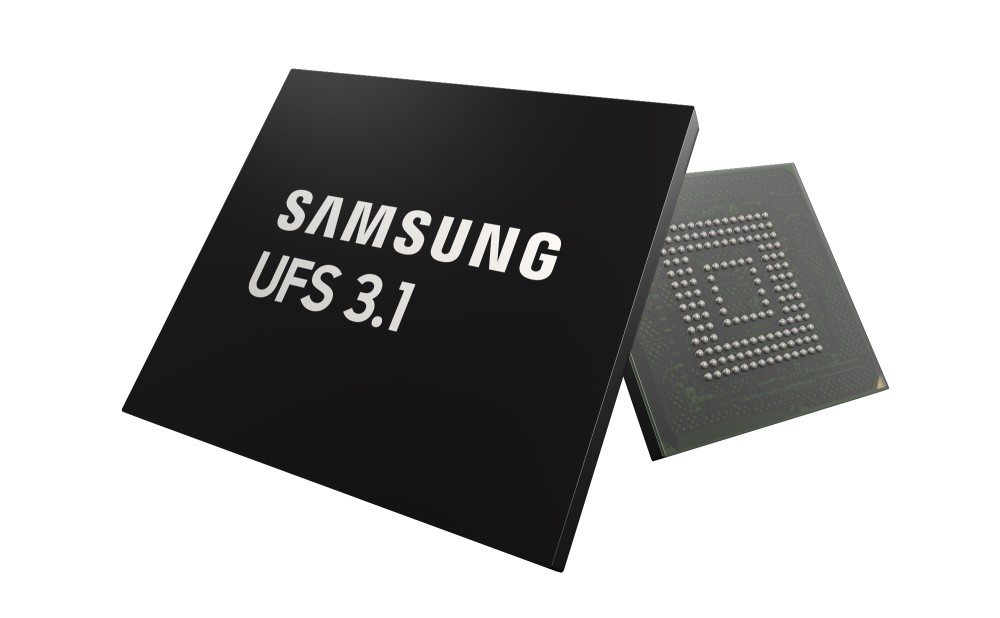South Korean tech giant Samsung Electronics has initiated the mass production of UFS 3.1 storage chips for automotive applications, specifically targeting in-vehicle infotainment (IVI) systems. The new lineup of NAND flash storage chips promises superior data transfer speeds, alongside the industry’s lowest energy consumption, contributing to increased stability. The storage chips will be available in three versions: 128GB, 256GB, and 512GB.
Power Efficiency and Speed: Samsung’s UFS 3.1 Storage Chips

The 256GB model in particular boasts an improvement in power efficiency of 33% compared to its predecessor, achieving up to 2,000Mbps sequential read speeds and up to 700Mbps sequential write speeds. Samsung’s new storage chips are certified for the AEC-Q100 Grade2 standard, assuring stable performance within a wide temperature range, from -40°C to 105°C. This makes them suitable for advanced driver assistance systems (ADAS).
Hyunduk Cho, Vice President of the Memory Product Planning Team at Samsung Electronics, expressed the company’s commitment to meet the evolving needs in the automotive semiconductor market and adhere to high ESG standards.
Samsung has received the ASPICE Level 2 certification, signaling the high reliability of its products. The company plans to make the new UFS 3.1 storage chips available to car manufacturers and automotive parts makers by the end of 2023.
Since initiating its automotive memory business in 2015, Samsung has consistently led the industry, introducing various innovative memory solutions including AutoSSD, Auto LPDDR5X, and Auto GDDR6. The launch of the UFS 3.1 chips for automotive applications reflects Samsung’s commitment to address growing data storage and computational demands within the sector.
RELATED:
- Samsung Galaxy S24 may be powered by a Deca core Exynos 2400 SoC
- Samsung Galaxy Tab S9 series Canadian pricing leaked ahead of launch
- Should you buy Samsung Galaxy S21 FE Snapdragon variant in India?
- Nothing Phone (1) vs Nothing Phone (2): Specs Comparison







